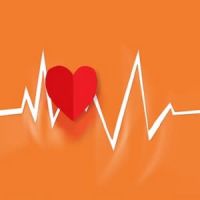Researchers studied beer drinkers at the Munich Octoberfest and found that the more the alcohol consumption, the higher the likelihood of developing cardiac arrhythmia. The research findings are published in the European Heart Journal.
See Also: Moderate, Habitual Alcohol Intake Can Cause Irregular Heartbeat
This is the first study to investigate the link between acute alcohol consumption and cardiac arrhythmia. The study is unique as it observed the participants in a prospective fashion. In other words, people were examined as they drank rather than asking them to remember later how much they had drunk, when and for how long.
Heavy drinking over a short period of time has been linked to "Holiday Heart Syndrome" in which people without any previous history of heart problems can develop arrhythmia and atrial fibrillation.
This study, led by assistant professors of medicine, Stefan Brunner and Moritz Sinner, from the Department of Medicine I at the University Hospital Munich, included 3,028 voluntary participants who were observed over a period of 16 days. They drank various amounts of alcohol throughout the day ranging from none to a maximum of three grams of alcohol per kg of blood. Average age of the study participants was 35. ECG recordings were conducted through a smart, phone-based device to monitor heart activity. A handheld breath analyser was used to test the breath alcohol concentrations.
Prevalence of arrhythmia in the general population was estimated to be between 1 to 4% in the study. Cardiac arrhythmia were observed in 30.5% of the participants and 25.9% of these arrhythmia were sinus tachycardia. Breath alcohol concentrations were linked with a higher risk of cardiac arrhythmia for each one gram of alcohol. Each one gram of alcohol per kg of blood above zero increased the likelihood of a cardiac arrhythmia by 75%.
As Dr. Brunner explains, 3 grams of alcohol reflects a very high intake of alcohol. Most people cannot tolerate these high levels. Just to get an idea, 3g/kg would mean approximately six litres of beer in a slim, fasting, low alcohol-metabolising person and larger people would require around ten litres of beer to reach this level.
The researchers also referred to the KORA study and examined the effect of habitual, long-lasting chronic consumption of alcohol in 4131 participants. They quantified the average amount of alcohol consumed per day. Only 2.7% participants had arrhythmia in the KORA study and 0.4% had sinus tachycardia. In this study as well, the likelihood of it increased by 3% per 1g of alcohol consumed per day.
"We confirmed an association between sinus tachycardia and chronic alcohol consumption in the KORA study, but the size of the effect was remarkably smaller than with the acute alcohol consumption at the Octoberfest. However, these parallel results from KORA, in effect confirm our main findings from the Octoberfest," said Dr Sinner.
Dr. Sinner explains that while their findings did not directly demonstrate that atrial fibrillation occurs consecutive to alcohol consumption but they did find a very strong association with both sinus tachycardia and respiratory sinus arrhythmia. The study may not have been able to prove the Holiday heart syndrome but the findings should help clinicians and researchers better understand the physiology associated with the condition.
Source: European Heart Journal
Image Credit: Pixabay
References:
Brunner, Stefan et al. (2017) Alcohol consumption, sinus tachycardia, and cardiac arrhythmias at the Munich Octoberfest: results from the Munich Beer Related Electrocardiogram Workup Study (MunichBREW). European Heart Journal; DOI: 10.1093/eurheartj/ehx156
Latest Articles
alcohol consumption, atrial fibrillation, cardiac arrhythmias
Researchers studied beer drinkers at the Munich Octoberfest and found that the more the alcohol consumption, the higher the likelihood of developing cardiac arrhythmia. The research findings are published in the European Heart Journal.



























